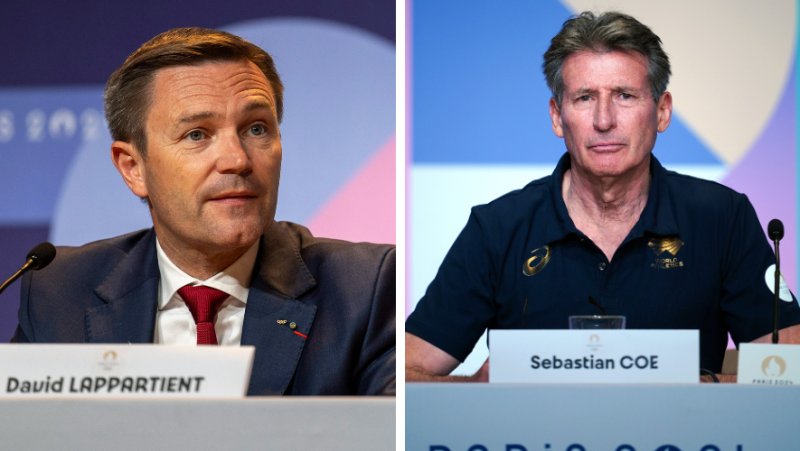IOC leadership elections: Frenchman David Lappartient and Briton Sebastian Coe among the candidates

Le Français et le Britannique candidatent à la présidence du CIO. MAXPPP
Seven candidates, including former British Olympic champion Sebastian Coe and Frenchman David Lappartient, will run in March 2025 to succeed German Thomas Bach as head of the International Olympic Committee, the IOC announced on Monday, September 16.
Bach, who has led the international body since 2013, announced after the Paris Olympics his intention to step down. Coe is the head of World Athletics and was the organizer of the London 2012 Olympics. Lappartient is president of the International Cycling Union.
Coe, a double Olympic champion in the 1,500 m, has his sporting aura, a media surface reinforced by the power of the English-language press, as well as a long career as a leader.
However, he has attracted enmity in the Olympic world by deciding to award bonuses to gold medal-winning athletes at the Paris Olympics, without consulting anyone, while most international federations cannot keep up financially.
His uncompromising positions, including the outright banning of Russian athletes since the start of the war in Ukraine, also contrast with Thomas Bach's search for consensus.
Drastic rules regarding the campaign
The other candidates to have officially declared themselves are, in alphabetical order: Jordanian Prince Feisal al Hussein, former Zimbabwean swimming champion Kirsty Coventry, British-Swedish Johan Eliash, head of the International Ski Federation, Juan Antonio Samaranch junior, son of the former emblematic head of the IOC and Morinari Watanabe, president of the International Gymnastics Federation.
“The candidates, the IOC specifies, will present their programme by video to all IOC members at a meeting in Lausanne (Switzerland) in January 2025." Framed by drastic rules, the campaign to succeed Thomas Bach promises to be very quiet.
The ethics commission, in addition to anti-corruption rules, issues very strict rules of discretion. To "prevent excess", contenders must "avoid any comparison" with their rivals and "must not engage in any public debate among themselves", according to these guidelines.
Not only can IOC members not publicly support a candidate, but this neutrality applies to the entire Olympic family, including international federations and national Olympic committees and their staff: even a "like" on social media is forbidden to them.




